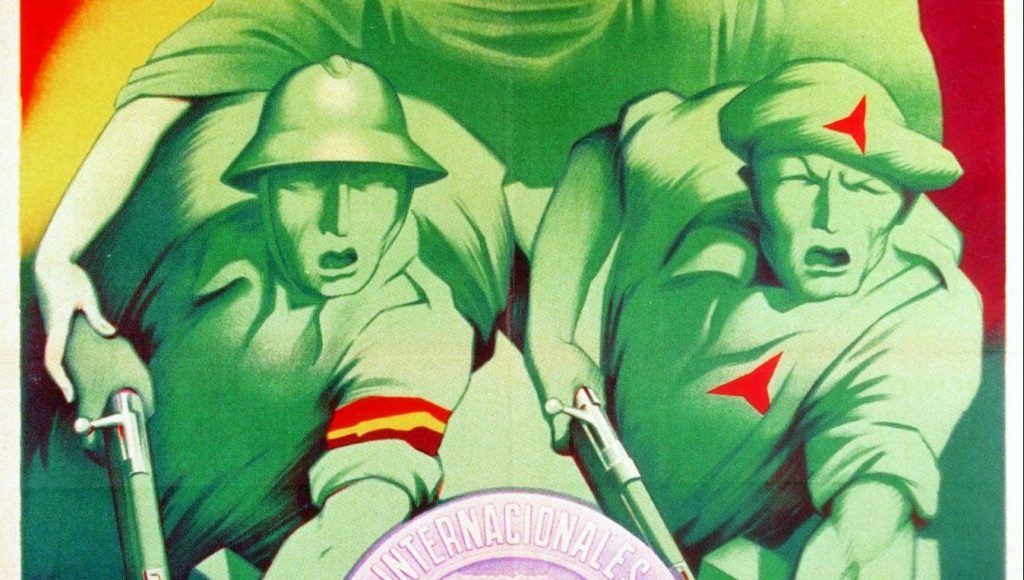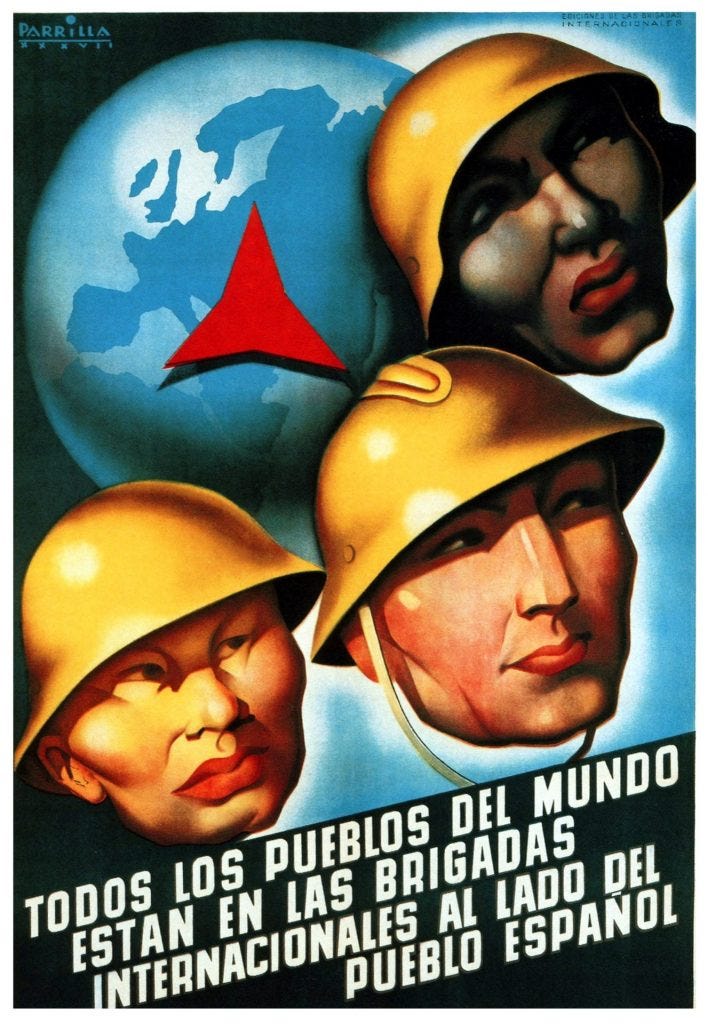Return of the international brigades
Could Ukraine become a historical hinge point for idealistic initiative when confronted by the forces of tyranny, just like the Spanish civil war in the 1930s?

Spain: ‘Internationalists, United with the Spanish People and Struggle Against the Invader’. International Brigades Revolutionary Poster, Spanish Civil War, 1937
The battle for Ukraine is mutating, from an almost certainly lost cause to a just cause with a chance.
In the days since Russia began the vicious assault on its neighbour the international mood music has gone from funereal to belligerent. Social media posts from the warzone are inundated with alternately sad, funny and hopeful stories attesting to the Ukrainian people’s unbroken morale. And the Ukrainian president Volodymyr Zelensky’s emotional appeal to “citizens of the world” to join his country’s fight for its life as a sovereign nation is gaining traction.
Volunteer fighters from Britain, the US, Germany and elsewhere are answering the call to arms and heading for Ukraine. The UK foreign secretary, Liz Truss, went on national TV to declare she would “absolutely” back anyone wanting to volunteer to help the Ukrainians because they “are fighting for freedom and democracy, not just for Ukraine, but for the whole of Europe”. Typically, the government then rowed back on this — saying it would be illegal and the best way to stop Vladimir Putin was to make donations instead — but dozens of British citizens have already made their choice and are in, or on their way to, Ukraine.
Might Ukraine become a historical hinge point for idealistic initiative when confronted by the forces of tyranny, just like the Spanish civil war in the 1930s? In Spain in 1936, when a broad coalition of Republicans loyal to the left-leaning Popular Front government fought against General Franco’s fascists, citizens of liberal democracies took up the weapons that their officially non-interventionist governments were leery of deploying.
The list of people who believed defence of the Spanish republic was a cause worth fighting for is long and distinguished. It includes George Orwell, Laurie Lee and Ernest Hemingway, all of whom would later write about their experience, its brief flash of hopefulness and prolonged dreadfulness.
The parallels with Ukraine at this point are mainly about the fine precedent set by volunteer efforts to try and turn the tide of war. The 1930s battle for Spain was cast as one for humanity’s progress. It lit a fire. In Homage to Catalonia, Orwell’s 1938 account of volunteering for the war, he writes: “To anyone from the hard-boiled, sneering civilization of the English-speaking races there was something rather pathetic in the literalness with which these idealistic Spaniards took the hackneyed phrases of revolution… All this was queer and moving. There was much in it that I did not understand, in some ways I did not even like it, but I recognized it immediately as a state of affairs worth fighting for.”
Are Ukrainians’ belief in democracy and freedom as values to live by — and die for — similarly worthwhile for the sneering West? After Zelensky called for “friends of Ukraine, peace and democracy” to join the fight to “save Europe”, his government created an “international brigade” of volunteers and urged foreigners to head to Ukrainian embassies worldwide to sign up.
There are decided echoes of Spain’s international brigades.
Read on at The New European. The full piece is at https://www.theneweuropean.co.uk


